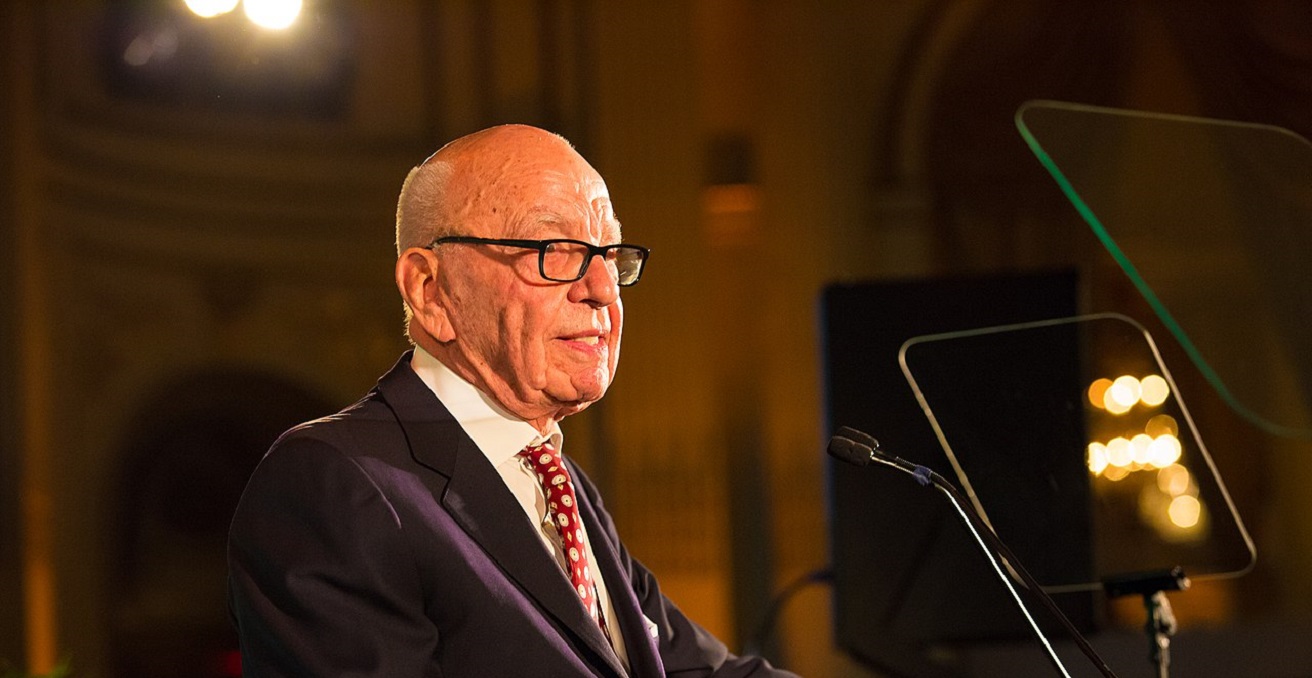Rupert Murdoch and the International News Empire

Has Rupert Murdoch really retired? Two distinguished former Fleet Street editors analyse the media mogul’s announced retirement from active duty.
It sounds improbable, but two of Fleet Street’s most distinguished editors have produced a wide-ranging podcast which assesses the career of 92-year-old Rupert Murdoch who inherited a modest afternoon newspaper, the Adelaide News, from his father and built the world’s largest news and television business, the News Corporation, making him one of the world’s richest men.
Alan Rusbridger was editor-in-chief of The Guardian for 20 years until 2015, and Lionel Barber edited the Financial Times for 14 years to 2020. The pair have teamed up to produce a weekly podcast, Media Confidential, to analyse what the world’s leading English language media is doing right or wrong.
A great idea, although we must remember that both men come from newsrooms in which a loathing of Murdoch is part of the DNA. Although they are constrained in their dialogue, they make only a modest attempt to credit Murdoch’s undoubted achievements, apart from mentioning his long battle with Britain’s print unions almost half a century ago that led to the survival of the British national press as we know it today.
Rusbridger and Barber highlight a quote from Malcolm Turnbull, a former prime minister of Australia, to headline the case against Murdoch. In an exclusive interview with Rusbridger, Turnbull described Murdoch’s legacy as “a very dark one … [doing] more to damage American democracy than any other individual alive today.” However, apart from some discussion of false stories purveyed by Fox News, particularly endorsing Donald Trump’s claim that his election defeat two years ago was rigged, little evidence was served up by Media Confidential to support Turnbull’s extravagant claim.
Worse still, there was almost no case for the defence. It would have been nice to have had witness statements from editors who have served substantial periods and survived the experience with their reputations intact, such as the feisty Scot Andrew Neil, Robert Thomson, or David Armstrong. The only other interview was with the American author Michael Wolff, whose book on Murdoch, The Fall: The End of Fox News and the Murdoch Dynasty, coincided perfectly with Rupert’s announcement a week ago that he was relinquishing the full-time chairmanship of both the News Corporation and Fox News and handing the gavel to his eldest son, Lachlan.
There should have been more about how Murdoch has devoted his skills and money to saving some of the world’s best newspapers from extinction. Arguably, the most notable was the Times of London and its sister newspaper the Sunday Times, which had been off the streets for more than a year because of strikes during the ownership of the Canadian, Lord Thomson of Fleet. Murdoch has also been a creator. He launched and ran The Australian for decades before it became profitable, despite the objections of many of his Mahogany Row executives. He created Britain’s Sky television, whose Sky News has won many plaudits for its global coverage until it was sold to its present American owners, Comcast.
Murdoch’s support for political leaders has also been mixed and varied. In the United Kingdom he was, for most of her leadership, a strong supporter of Margaret Thatcher but then went on to back Labour’s Tony Blair. Much the same happened in Australia when Murdoch, more often than not on the right side of politics, was a strong supporter of the ALP’s Bob Hawke and Paul Keating. Murdoch had an uncanny ability to pick winners.
Ironically, given the title of the book, Wolff and the podcasters believe Murdoch will continue to be active. The podcast concludes with a lengthy but fascinating discussion about which of the Murdoch children will ultimately control the business. But until their father dies, Wolff is adamant that Rupert will remain at the helm. “He actually, in some sense, literally can’t retire except by death. He holds all the power. The votes are in his hands. He controls the board. He controls who sits as the CEO… and he’s a meddlesome son of a bitch,” Wolff said.
Colin Chapman FAIIA is a writer, broadcaster, public speaker, who specialises in geopolitics, international economics, and global media issues. He is a former president of AIIA NSW and was appointed a fellow of the AIIA in 2017. Colin is editor at large with Australian Outlook.
This article is published under a Creative Commons License and may be republished with attribution.





